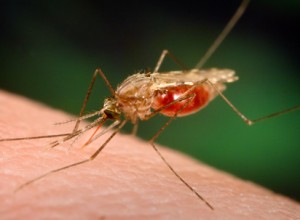Ghana Health Service ceases mass distribution of mosquito nets in Upper West
 Ghana Health Service (GHS) has announced that it will no longer distribute Long Lasting Insecticide Treated Nets (LLITNs) on mass basis in the Upper West Region until further notice.
Ghana Health Service (GHS) has announced that it will no longer distribute Long Lasting Insecticide Treated Nets (LLITNs) on mass basis in the Upper West Region until further notice.
It however said for now two other malaria programmes, namely the Indoor Residual Spraying (IRS) and the Seasonal Malaria Chemoprevention (SMC) would continue in the absence of the mass distribution of the treated nets.
The GHS urged residents in the Region to continue to use the LLITNs already distributed to them to help reduce malaria.
Mr. Titus Tagoe, Upper West Regional Malaria Focal Person, announced this during a media campaign to promote the use of LLITNs in the Region, organised by the Institute of Social Research and Development (ISRAD) in Wa.
He said due to the interventions put in place by the Ghana Health Service and partners, the malaria prevalence rate in the Region had been reduced from 51 per cent in 2011 to 37.8 per cent in 2014.
He said despite those interventions, the Region still remained at the top with the highest malaria burden among the 10 regions of the country.
Mr. Cornelius Pienaah, ISRAD Field Officer, said the goal for the media campaign was to establish a net culture among families and individuals across the country through its behavioural change communication intervention.
He said through this behavioural change communication intervention, the ISRAD hopes to create awareness among the public about the link between mosquito bites and malaria as well as sensitizing them on the benefits of using treated nets.
Mr. Pienaah said in doing that, ISRAD was expecting among other things to reduce new malaria cases through effective prevention and diagnosis.
Source: GNA
